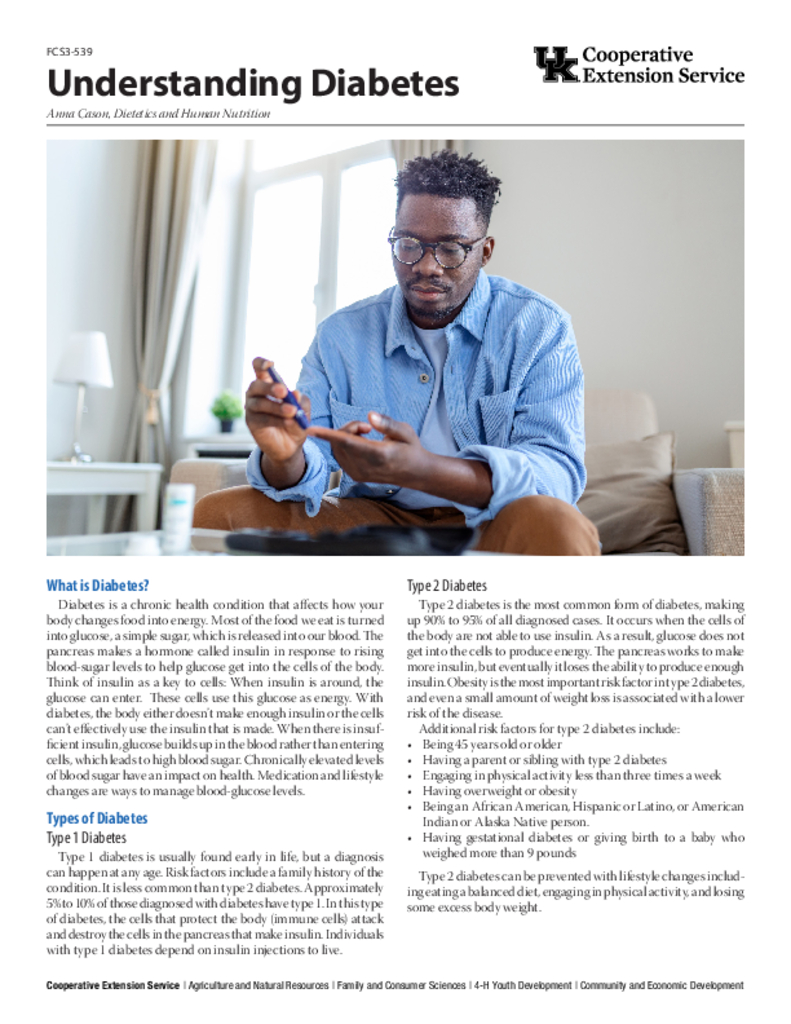Understanding Diabetes
Understanding Diabetes
Abstract
Diabetes is a chronic health condition that affects how your body changes food into energy. Most of the food we eat is turned into glucose, a simple sugar, which is released into our blood. The pancreas makes a hormone called insulin in response to rising blood-sugar levels to help glucose get into the cells of the body. Think of insulin as a key to cells: When insulin is around, the glucose can enter. These cells use this glucose as energy. With diabetes, the body either doesn’t make enough insulin or the cells can’t effectively use the insulin that is made. When there is insufficient insulin, glucose builds up in the blood rather than entering cells, which leads to high blood sugar. Chronically elevated levels of blood sugar have an impact on health. Medication and lifestyle changes are ways to manage blood-glucose levels.
Core Details
Publication Date
January 24, 2025
Categorical Details
© 2025 University of Kentucky, Martin-Gatton College of Agriculture, Food and Environment

